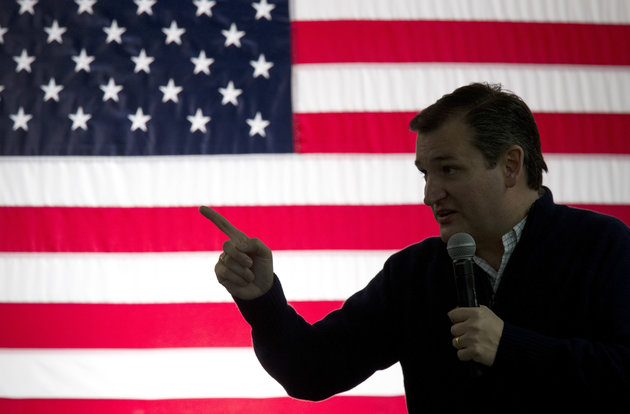
On the same day he won the Republican Iowa caucus, Sen. Ted Cruz of Texas got a favorable decision from the Illinois Board of Elections, which ruled that he met the citizenship criteria to appear on the state's primary ballot.
Two objectors, Lawrence Joyce and William Graham, had challenged Cruz's presidential bid with the board, contending that his name should not appear on the March 15 ballot because his candidacy did not comply with Article II of the Constitution.
Adopting the recommendations of a hearing officer who considered the matter last week, the board of elections on Monday rejected both objections, ruled Cruz eligible and ordered that his name be certified for the election.
"The Candidate is a natural born citizen by virtue of being born in Canada to his mother who was a U.S. citizen at the time of his birth," the board said, reasoning that Cruz met the criteria because he "did not have to take any steps or go through a naturalization process at some point after birth."
Both objections, which on their face seemed to carry little weight, had forced lawyers for Cruz to formally respond and offer appropriate counterarguments.
In response to the filings, Cruz's lawyers relied on Supreme Court precedent, legal history and articles from noted constitutional scholars to defend the view that he is in fact "natural born" within the meaning of the Constitution.
The lawyers also pointed to the valid candidacies of two former Republican hopefuls, Sen. John McCain of Arizona and former Michigan Gov. George Romney, as examples of presidential runs that received the blessing of Congress, courts and other means to proceed, despite the fact that both men were born abroad and raised eligibility questions.
These and other sources of authority, the lawyers said, "all command the same conclusion" that Cruz complies with the "natural born" requirement.
Agenda minutes for the Illinois Board of Elections -- which includes its determinations in the two challenges to Cruz's eligibility plus a separate one Graham filed against Sen. Marco Rubio (R-Fla.) -- can be found here.
Reached by phone on Tuesday, Joyce -- who is listed as an attorney in Illinois but doesn't actively practice law -- told The Huffington Post he's not planning an appeal of the board's determination due to lack of resources. He said, however, that he hopes "somebody else takes up the cause" against Cruz.
A deafening birther debate over whether Cruz satisfied the constitutional standard for the presidency emerged in the months leading up to Monday's Iowa caucus -- fueled in large part by attacks from fellow Republican candidate Donald Trump, who wouldn't let up mere days before voting began.
As if addressing the magnate directly, the Illinois Board of Elections was conclusive in its findings: "Further discussion on this issue is unnecessary."
But a New Hampshire ballot commission in January was a little more tentative.
In rejecting a similar challenge to Cruz's eligibility to appear on the ballot for the state primary, which is scheduled for next week, the commission recognized that a suitable court should settle the matter -- "so that all election officials and the American people know once and for all the definition of 'natural born citizen.'"
That, the commission said, "would be helpful in avoiding uncertainty."
- Publish my comments...
- 0 Comments
